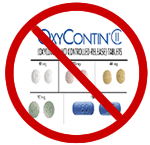Penn State Sexual Abuse Scandal: A Crisis of Leadership
As detailed in my previous presentations and writings, such as noted below in the May 15, 2007 blog, this new and blistering scandal is one of a long list of leadership deficiencies in our nation's private, public, educational, faith based and sports sectors. It is a reminder that America needs a reawakening of character, leadership, ethics and moral courage.
PURDUE PHARMA EXECUTIVES: CRISIS OF CHARACTER

According to a May 10, 2007 U.S. Department of Justice press release, Purdue Pharma L.P., the maker of the powerful painkiller OxyContin, and three of its former executives pleaded guilty to misleading the public about the drugs risk of addiction.
"Purdue's claims that OxyContin was less addictive and less subject to abuse and diversion were false – and Purdue knew its claims were false."
From the USDOJ Press Release
Joseph A. Califano, Jr., Chairman and President of The National Center of Addiction and Substance Abuse at Columbia University, made a statement regarding Purdue Pharma Executives misleading the public on OxyContin:
"If Purdue Pharma and its executives had been street drug dealers they would be in prison for a very long time. Their fraudulent and misleading marketing has led to thousands of deaths from overdose use of OxyContin and many more kids have their lives ruined by addiction to the drug. They have made billions of dollars. A fine of several hundred million dollars is hardly appropriate for the ruined lives and deaths they have caused lying about the addictive nature of this drug. Prescription drug abuse has exploded in America and OxyContin is the chief culprit."
[Reprinted from U.S. Department of Justice Press Release – http://www.usdoj.gov/usao/vaw/]
One of the oldest and most challenging medical mysteries is the treatment of pain. For centuries, scientists and doctors have searched for a drug that would safely relieve patients of their chronic pain without inflicting the dangerous side effects that routinely come from the use of addictive narcotics. The discovery of this "wonder" drug would bring hope and relief to millions of suffering patients and wealth beyond one’s imagination to its creators. In 1996, Purdue and its top executives claimed that they had developed such a drug; a safe drug that would help those suffering in pain. The name of that drug was OxyContin. Backed by an aggressive marketing campaign, Purdue's OxyContin became the new pain medication of choice for many doctors and patients. Purdue claimed it had created the miracle drug – a low risk drug that could provide long acting pain relief but was less addictive and less subject to abuse. Purdue's marketing campaign worked, and sales for OxyContin skyrocketed – making billions for Purdue and millions for its top executives. But OxyContin offered no miracles to those suffering in pain. Purdue's claims that OxyContin was less addictive and less subject to abuse and diversion were false – and Purdue knew its claims were false. The result of their misrepresentations and crimes sparked one of our nation's greatest prescription drug failures. OxyContin is nothing more than pure oxycodone – a habit forming narcotic derived from the opium poppy. Purdue's OxyContin never lived up to its hype and never offered a low risk way of reducing pain as promised. Simply put, the genesis of OxyContin was not the result of good science or laboratory experiment. OxyContin was the child of marketeers and bottom line financial decision making. Accordingly, this morning, in a federal courtroom in Abingdon, Virginia, the Purdue Frederick Company, the manufacturer and distributor of OxyContin, pleaded guilty to a felony charge of illegally misbranding OxyContin in an effort to mislead and defraud physicians and consumers. Purdue has agreed to pay over $600 million in criminal and civil penalties, fines and forfeitures, subjected itself to independent monitoring and an extensive remedial action program, and acknowledged that it illegally marketed and promoted OxyContin by falsely claiming that OxyContin was less addictive, less subject to abuse and diversion, and less likely to cause withdrawal symptoms than other pain medications – all in an effort to maximize its profits. Also, Purdue's Chief Executive Officer Michael Friedman, General Counsel Howard Udell, and former Chief Medical Officer Paul Goldenheim pleaded guilty to a misdemeanor charge of misbranding OxyContin and collectively agreed to pay $34.5 million in penalties. With its OxyContin, Purdue unleashed a highly abusable, addictive, and potentially dangerous drug on an unsuspecting and unknowing public. For these misrepresentations and crimes, Purdue and its executives have been brought to justice.
Punishment for corporate corruption should be comparable to the Racketeer Influenced and Corrupt Organizations Act (RICO) penalties – it must be severe and should include prison sentences and forfeiture of all ill-gotten gains. Fines that take just a small part of the illegal profit are only a slap on the wrist and serve to encourage future corruption. It's time for these corporate criminals to exchange their pinstripes for prison stripes.
Labels: Character, Scandal and Corruption




0 Comments:
Post a Comment
<< Home